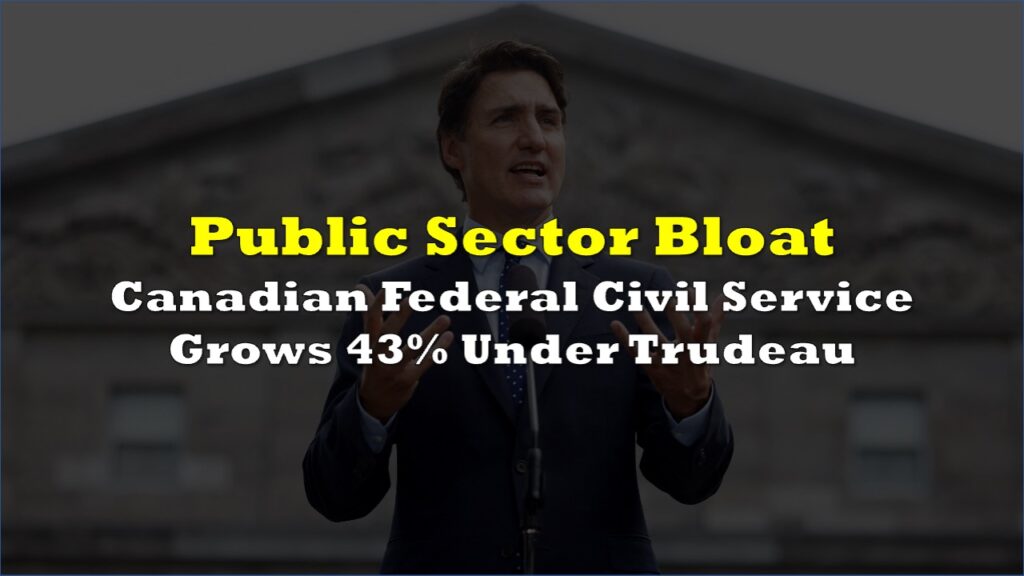The Trans Mountain Expansion Project (TMEP), the infamous Canadian pipeline project significantly over budget that quickly became one of Prime Minister Justin Trudeau’s most costliest mistakes, now owes at least $23 billion to lenders.
With the Liberal government not committing any more public funds and construction costs rising, the TransMountain Corporation (TMC) is left with no choice but to search for additional private lenders if it’s to ever transport oil. As of March 2023, the expansion project— which is now set to double the current pipeline’s output to 890,000 barrels per day, was reportedly 80% finished as per March projections.
Despite having already secured around $10 billion in credit from Canada’s major private banks, the TMEP still requires billions more to finalize its construction. This financing need poses a significant risk, given that the Canadian Development Investment Corporation (CDEV), the Crown corporation owning the project, has warned of “material uncertainty” about Trans Mountain’s ability to secure adequate financial resources.
If the project fails to secure additional funding, construction would be halted, delaying its in-service date. The existing debt, which is government-backed, is expected to be paid down through the expanded pipeline’s operational cash flow, scheduled to begin in 2024. Trans Mountain anticipates generating $2.4 billion in adjusted EBITDA during its first year of operation, with growth expected in the subsequent years. However, critics argue that EBITDA is not reflective of net profit, as it excludes interest expenses and debt repayment, creating a misleading image of the project’s financial viability.
The project’s cost, originally estimated at $7.4 billion in 2018, has continually risen due to various factors including competition for scarce resources like steel and labour, and the environmental and engineering challenges of the route. The current estimate is $30.9 billion, a sum that raises questions about the project’s profitability. The increased costs cannot be passed on to companies with locked contracts for oil shipment, leading to substantial political and financial liabilities.
While the project has faced criticism, the federal department overseeing it maintains its viability and importance for Canada’s economy. The government has plans to divest from Trans Mountain in the future, but the recent corporate plan does not predict this occurring in 2023.
Still, doubts have been raised about whether the government can recover its substantial investment. The growing debt could necessitate a write-off before a sale to the private sector. Despite claims to the contrary, the Canadian government remains responsible for the accruing interest on public debt and the project’s private sector credit.
Meanwhile, the TMEP’s completion deadline has been pushed back several times and is now slated for 2024. Its expansion is expected to contribute significantly to carbon emissions, though the company aims to reduce these emissions by 15% in 2030 and achieve net zero by 2050.
Information for this briefing was found via CBC News and the sources mentioned. The author has no securities or affiliations related to this organization. Not a recommendation to buy or sell. Always do additional research and consult a professional before purchasing a security. The author holds no licenses.










2 Responses
On May 17,2023 I talked to a pipeline welder. He gets paid $1500.00 per day…but often there is no work. He wants to work and be productive, but it is a big disorganized mess…so he often gets $1500.00 FOR DOING NOTHING. I have been driving thru the coquihalla for the last few years… Lots of flashing lights and white pickup trucks……
hi Paul, I am a reporter with Global News. I would love to hear more. If you see this, please message me, confidentially, at transmountainglobalnews@yahoo.com